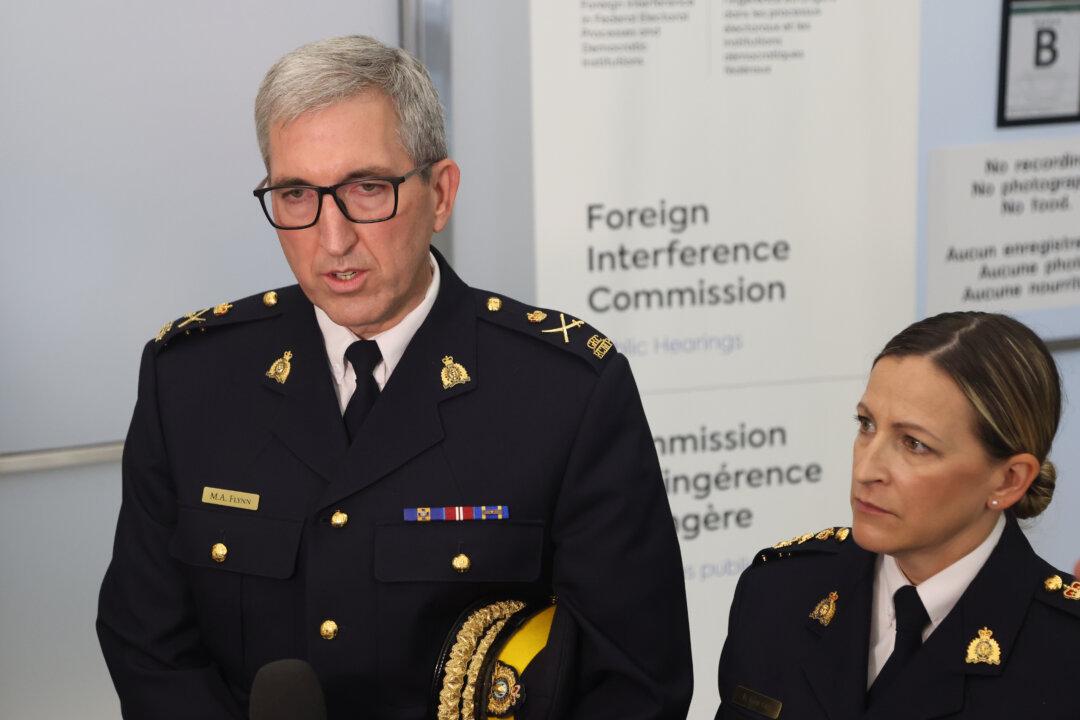An investigation into China-linked foreign interference and money laundering operation was dropped due to concerns it would have little impact, highlighting broader issues of resource limitations within law enforcement, a senior RCMP official says.
RCMP Deputy Commissioner Mark Flynn was made aware of a “money laundering network connected to organized crime and [People’s Republic of China foreign interference] activity,” according to a summary of his closed-door testimony at the Foreign Interference Commission released this week.





